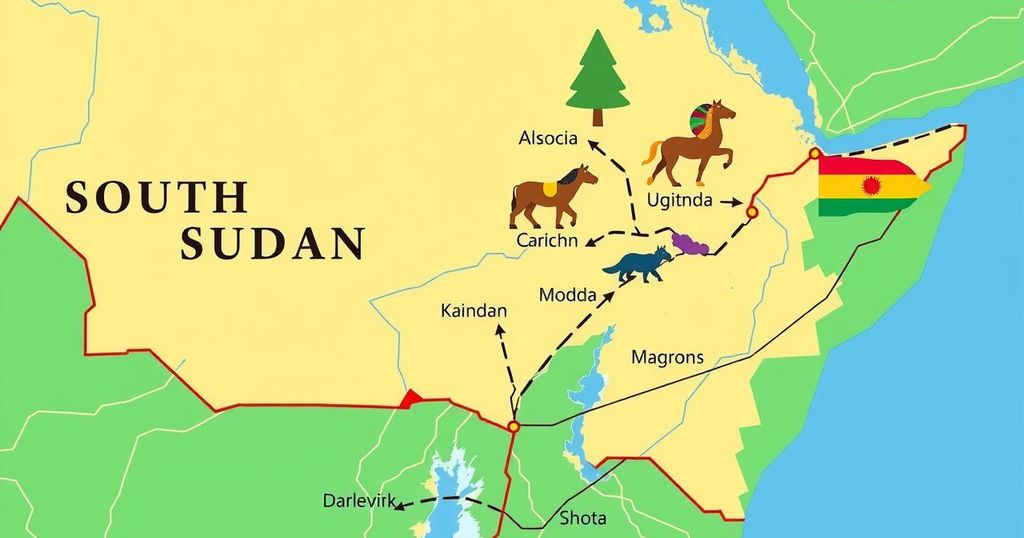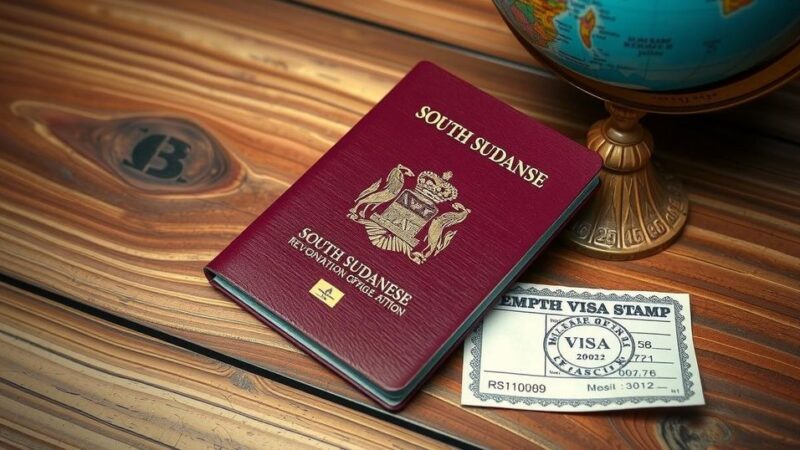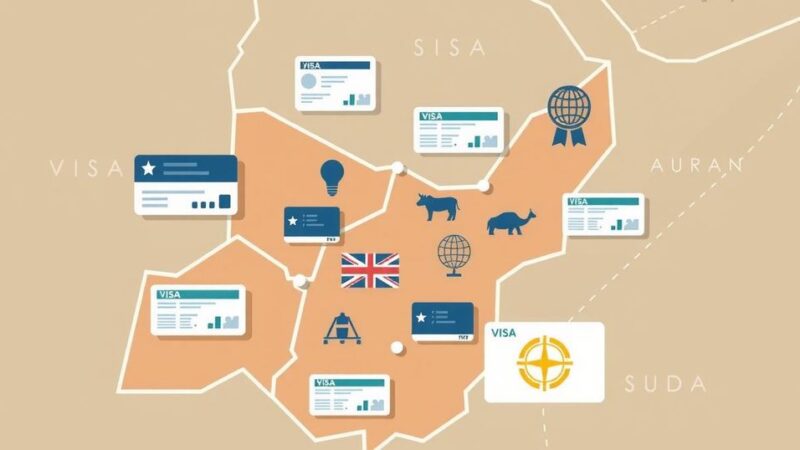South Sudan’s relationship with Uganda is vital yet complex, influenced by shared history and competing interests. Uganda’s military involvement has exacerbated tensions, especially post-civil war, leading to accusations of bias in South Sudan. As both nations vie for influence and economic control, a balanced foreign policy is crucial for South Sudan to maintain sovereignty and stability in a volatile region.
South Sudan, the world’s youngest nation, is currently at a pivotal junction in its relations with Uganda. Both countries share a long history characterized by cultural connections and differing political agendas, influencing their regional stability and economic growth.
Throughout South Sudan’s struggle for independence, culminating in July 2011, Uganda played a significant role by providing military aid alongside the Sudan People’s Liberation Army (SPLA). This support was frequently framed as a simultaneous effort against the Lord’s Resistance Army (LRA), which was battling the Ugandan government.
Post-independence, the relationship has been marked by cooperation and friction. South Sudan has been a lucrative market for Ugandan products, whereas Uganda has been instrumental in peace initiatives through organizations like the Intergovernmental Authority on Development (IGAD). Uganda’s role in facilitating trade into landlocked South Sudan has been indispensable.
However, Uganda’s military presence in South Sudan has led to tensions, particularly following the civil war that erupted in December 2013. The deployment of the Ugandan People’s Defense Force (UPDF) to assist President Salva Kiir’s government against the opposition escalated tensions, resulting in extensive loss of life and infrastructure damage.
Although the civil conflict formally ended with a 2018 peace agreement, South Sudan remains unstable, and relations with Uganda have become more complex, intricately linked to regional geopolitics. Both nations have engaged in military interventions in areas like the Democratic Republic of Congo (DRC) and Somalia, occasionally violating international protocols.
Uganda’s backing of President Kiir has led to claims of bias from opposition factions, worsening internal divisions in South Sudan. The influence of neighboring countries like Sudan and Ethiopia further complicates the political landscape, with each attempting to gain leverage over various factions.
The competition between the two nations extends into the economic domain, notably within the critical trade and energy sectors. Uganda has established essential infrastructure, including oil pipelines aimed at connecting South Sudan’s reserves to Ugandan markets, potentially escalating tensions as both countries vie for resource control.
Moreover, Uganda’s strategic investments in South Sudan’s oil sector have triggered international attention, especially as South Sudan struggles with infrastructure inadequacies. It is imperative that both nations engage in constructive dialogue to avoid disputes that jeopardize their mutual interests.
South Sudan’s geographical positioning in the Horn of Africa makes it attractive to global powers while its relations with neighboring states dictate its foreign policy. Countries such as the United States, China, and Russia are vying for influence in the area, driven by its untapped resources.
As a stable and influential state in East Africa, Uganda has a significant interest in maintaining South Sudan’s stability for its own security and regional dominance. However, its close affiliation with Kiir’s government has attracted criticism from nations like Sudan, complicating their diplomatic engagements.
International organizations, notably the United Nations and the African Union, have influenced Uganda’s policies, as Kampala seeks to balance its interests with external calls for regional stability and cooperation. The global community has consistently encouraged Uganda to pursue a more balanced and neutral approach in South Sudan, fostering dialogue among all parties involved.
To effectively manage its relationship with Uganda, South Sudan must establish a comprehensive diplomatic strategy that secures its sovereignty and internal stability throughout its diverse ethnic landscape. It is crucial to avoid excessive reliance on any single nation, particularly Uganda, to prevent entanglements in external conflicts.
South Sudanese leadership should prioritize engagement with Uganda while simultaneously cultivating diplomatic ties with regional powers like Ethiopia and Kenya. Addressing governance shortcomings is essential for minimizing foreign meddling in domestic matters, enabling South Sudan to establish a stronger independent identity within the region.
Strengthening governance systems and promoting inclusive politics will empower South Sudan to steer clear of the complexities of regional power struggles and reaffirm its sovereignty in the international arena.
In summary, South Sudan’s relationship with Uganda is complex and multifaceted, shaped by historical ties and contemporary geopolitical dynamics. As South Sudan confronts governance challenges and external influences, it must create a balanced foreign policy that protects its sovereignty while fostering economic cooperation. By engaging with multiple regional partners and addressing internal issues, South Sudan can work towards true independence and stability, safeguarding against external overreach.
Original Source: www.radiotamazuj.org






